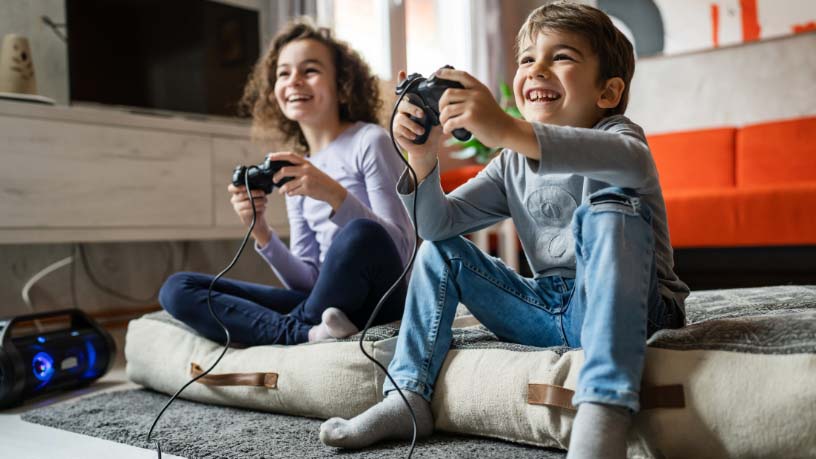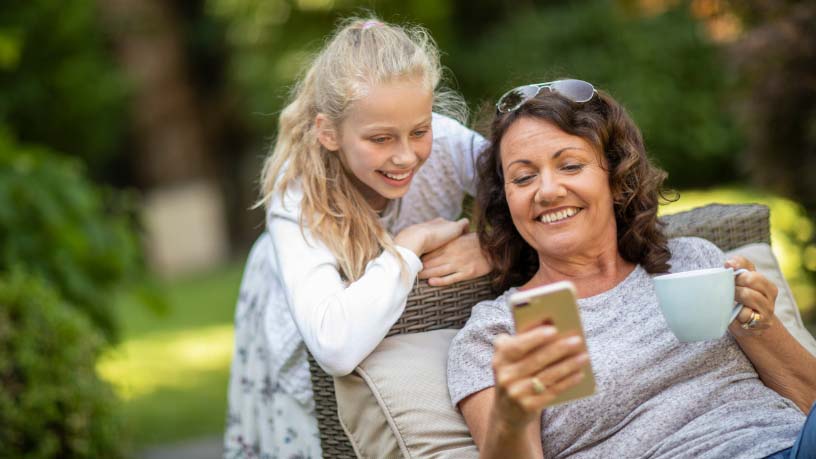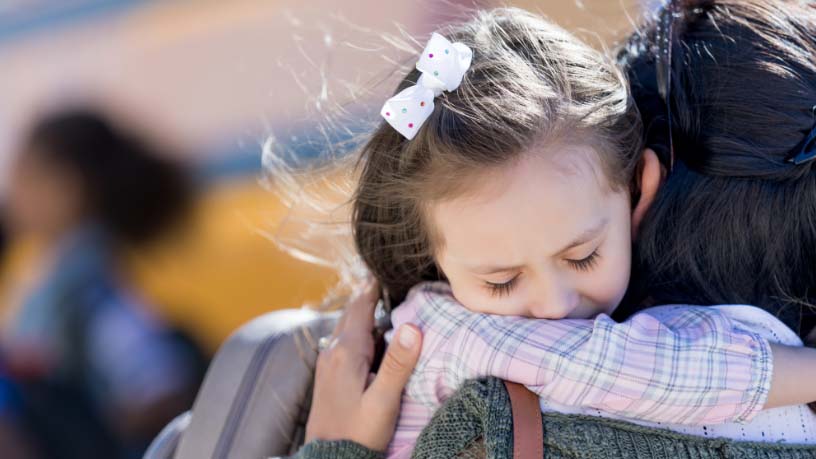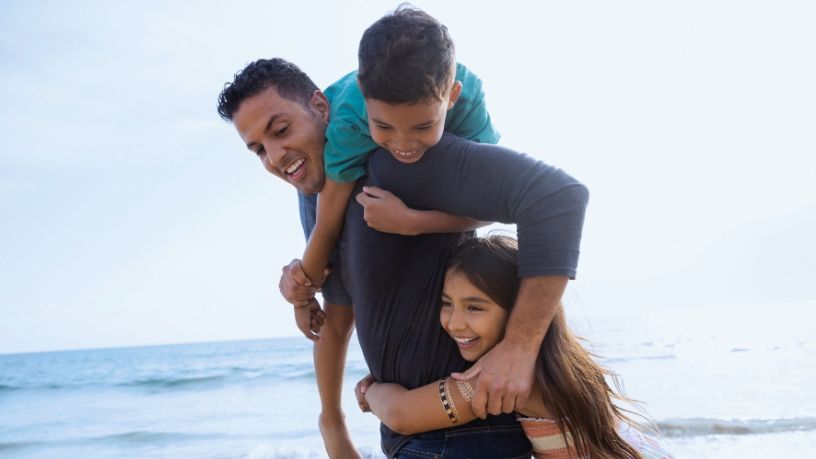Create opportunities for your child to make friends.
Key takeaways
There are ways to help your child feel less anxious about friendships.
Teaching your child to emotionally regulate may help them through the process.
Whether it’s starting a new school or looking to share the swing at the park, making new friends can be a tricky experience for kids.
As much as you’d love to, as a parent you can’t guarantee friendships for your children.
But that doesn’t mean you need to sit on the sidelines. With the right tools, you can help make it a lot easier for them to form friendships on their own.
Here, we look at expert tips for helping your child navigate the sometimes-tricky terrain of forming and maintaining friendships.
Creating opportunities
“Friendships are a fundamental part of a child’s development, and contribute significantly to their emotional, social and cognitive growth,” says Bupa Psychologist Mason Gismondi.
“However, forming and maintaining friendships can be challenging for many children.”
While forming friendships might seem organic from a child’s perspective, there is often a lot of planning and consideration involved.
Many parents take an active role in creating opportunities for their children to interact (beyond the standard social settings like day care or school). This might include setting up play dates, encouraging neighbourhood games or organising after-school activities.
“This helps children connect with others who share similar interests,” says Gismondi, “which provides a natural environment for friendships to form.”
While creating these opportunities is important, Gismondi warns against pushing your child too hard.
“It’s important to know your child’s limits,” he says. “Not every child will be inclined to be socially active, and this is okay. Respecting their comfort zones and avoiding pressuring them will also help reduce any potential anxiety your child might feel.”
Teaching social skills
“Teaching your child essential social skills, such as active listening and empathy, can be crucial in helping them build confidence when it comes to interacting with others,” says Gismondi. “This can help them lay a strong foundation for healthy friendships to form.”
Imaginative and active play-based activities can help them build these skills.
According to Gismondi, it’s also important to keep your own presence in mind. “Developing children are like sponges,” he says. “They will observe and absorb all that you do, and work to imitate this.”
“Role modelling positive social behaviours such as kindness and respect help your child internalise and demonstrate these qualities.”
[A primary school age boy and girl stand in a photographic studio talking to camera. Text appears on screen asking the children questions that they answer to camera]
[Text on screen: Today we talk about making new friends]
Alex: Um, I’m Alex.
Emily: And I’m Emily.
[Text on screen: Do you like meeting new people?]
Emily: Yes! If, um, you meet new people, they could show you things they do and you could catch on, like if they did a sport maybe you could do the sport with them and you could learn different things from different people.
[Text on screen: Was there a time when you felt shy or nervous about meeting new people?]
Alex: Maybe when I was 7, I moved from the ACT to here and I had to completely change schools, none of my friends were moving to Queensland and I was like “oh, what am I gonna do, I actually literally know no one and I know nothing about this area.”
[Text on screen: Were teachers able to help you?]
Alex: Ah yeah, I got paired up with two friends. Their names were Caden and George. Around last year, one of them moved to another school.
Emily: So, his best friend Caden had moved away, and I didn’t have many friends, so Miss Biedak paired us together.
Alex: She’s a good friend, and ah, she’s really funny!
[Text on screen: What advice would you give kids if they’re feeling anxious about making new friends?]
Alex: Uh, I would say, like generally just go up and say “hey,” um like “how you going,” like “do you wanna hang out sometime?” and like things kinda like that.
[Text on screen: Kids Helpline @ School has conversations like these with young people across Australia every single day. Learn more about our range of topics at school.kidshelpline.com.au]
Both: 1800 55 1800!
Celebrating the process
Instead of praising a child for making friends, it can help to focus on the process.
“While praising an outcome may seem positive, it can have a negative effect long-term,” says Gismondi. “This can mean a child will measure success only by the outcome and may experience pressure and anxiety when that outcome isn’t achieved.”
“Instead, celebrate the process. Say something like, ‘I saw how you went up to Jane today, you did something really brave!’”
What to do if your child is anxious about making new friends
“Understanding our children’s emotions can be hard,” says Gismondi, “especially when they translate into big behaviours such as kicking, screaming, crying.”
Gismondi says that it’s important to acknowledge and validate these emotions, not ignore them. “As parents, we can normalise feeling nervous or worried about making friends.”
You may try sharing your own stories and experiences of things that make you nervous. This might help your child navigate their feelings in a way that’s comfortable and relatable.Support with emotional regulation
According to Gismondi, “it’s useful to have a few exercises to work through with your child that can support them in regulating their emotions.”
Breathing exercises and mindful movements are great techniques to help with this.
“Ask your child to lie down on their back and help them focus on each individual body part from their head to their toes,” says Gismondi. “Then ask if they feel anything such as tingling, tension, fluttering. This can help your child relax physically, which can in turn support emotional regulation.”

At Bupa, trust is everything
Our health and wellbeing information is regularly reviewed and maintained by a team of healthcare experts, to ensure its relevancy and accuracy. Everyone's health journey is unique and health outcomes vary from person to person.
This content is not a replacement for personalised and specific medical, healthcare, or other professional advice. If you have concerns about your health, see your doctor or other health professional.
You might also like...
Friendships: The importance of healthy boundaries
We spoke to a psychologist to find out why it’s important for children to make friends and how you can help them set boundaries in their relationships.
How to talk to your kids about social media
Social media is a daily part of our kids’ lives, whether we like it or not. So, what are the risks and benefits, and how can we keep our kids safe online?
Bullying: A guide for parents and carers
It’s hard to know what to do when your child is being bullied, or how to recognise the signs in the first place. Check out this guide for some helpful tips.
7 holiday hacks every parent should know
Whether you’re driving or flying, travelling with the kids can be its own stress-filled adventure. We’ve put together some hacks to help you holiday





